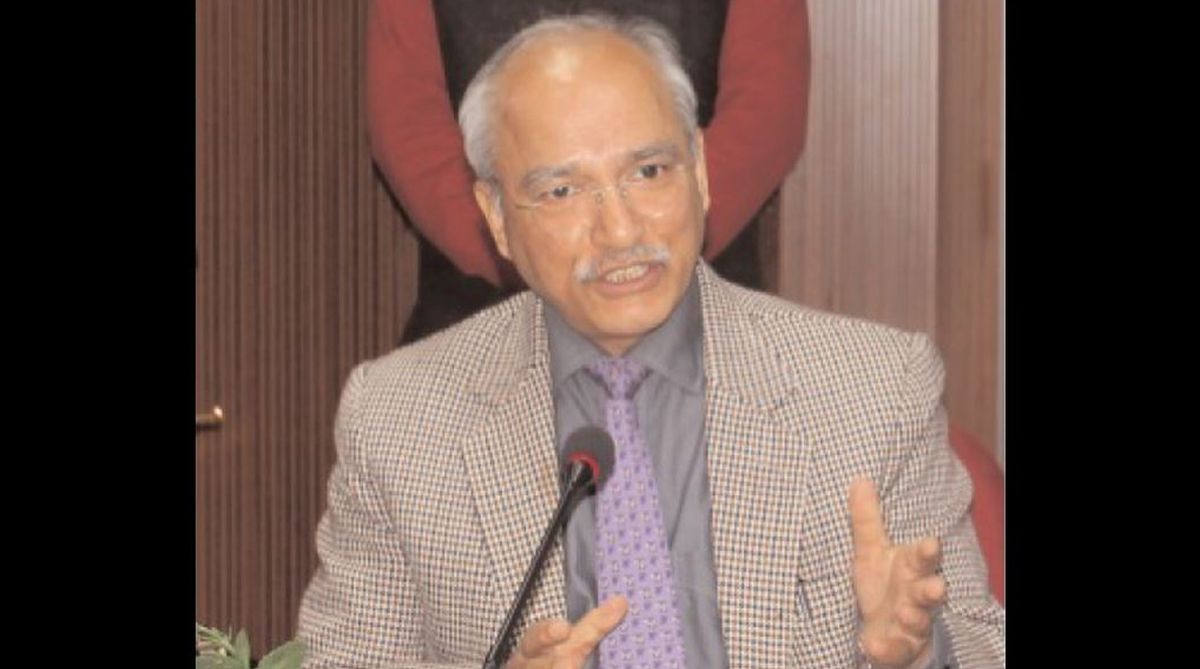HC solicits Animal Welfare Board suggestions on monkey menace in Shimla
A Division Bench comprising Chief Justice M S Ramachandra Rao and Justice Ajay Mohan Goel, passed this order.
Mountain farming expert, Dr Tej Partap says sterilisation of monkeys is not the answer, expresses concern that policies are being made without research inputs.

Dr Tej Partap. (Photo: SNS)
Noted mountain farming expert and Chairman of TIME LEARN project of Department of Science and Technology, Government of India, Dr Tej Partap on Tuesday said the ‘monkey problem’ is ecological and it cannot be solved technologically.
Dr Tej Partap, who was here for review of TIME LEARN (Technology Intervention for Mountain Ecosystem: Livelihood Enhancement through Action Research and Networking Programme) projects being taken up in Himachal Pradesh, Jammu and Kashmir and Uttarakhand, at a workshop, talked on livelihood issues of farmers vis a vis monkey problem in mountain states and said sterilisation of monkeys is no solution.
Advertisement
“We have to reduce the numbers. If we are facing a problem today, we have to find the solution today,” said Dr Tej Partap, who hails from the Kullu district in Himachal Pradesh and is presently the Vice Chancellor of GB Pant University of Agriculture and Technology, Pantnagar in Uttarakhand.
Advertisement
Talking to The Statesman, he said the human-animal conflict is the ecological backlash. “We need to solve it with ecological principles and practices. However, the pro-animal policies of the governments over the years has done the harm.”
He referred to a TIME LEARN project in Jammu, wherein people in villages are facing two types of problems with wild animals, one is agriculture-related and the other one due to domination of predators. “This has facilitated the need for redefining the project and we are working out solution for prevention of humans from predators.”
Dr Tej Partap said the national policies need to be redefined ecologically. “We have to have current perspective to work out strategies,” he said.
He said the mountains will never be the same as the situation has fundamentally changed. “The character of rural economy has also changed. It has now become cash economy. But unfortunately, we make policies without research inputs. There is urgent need for pre-policy research to understand the ground situation,” he said. He said unfortunately the policies are conflicting because of that lack of ground input.
Dr Tej Partap gave example of Rs 150 crore Polyhouse farming subsidy scheme for farmers of Himachal that was launched a decade back in this regard.
“The experience of Polyhouse project in Himachal was not good experience. Despite the fact that I forewarned being VC of Himachal Pradesh Agricultural University, Palampur then, the government did not keep a penny for research. They talked of low-cost greenhouses without realising the problems that the whole exercise may land the farmers in. Ultimately, the farmers who took to greenhouse farming faced losses for pathological problems in crops.
There was no research input into it and the agriculture department looked to the scientists after the problems occurred.”
Dr Tej Partap said the TIME- LEARN projects would meet success if they ultimately make way to the planning in the states and are adopted for replication at bigger level to benefit the community at large.
Advertisement